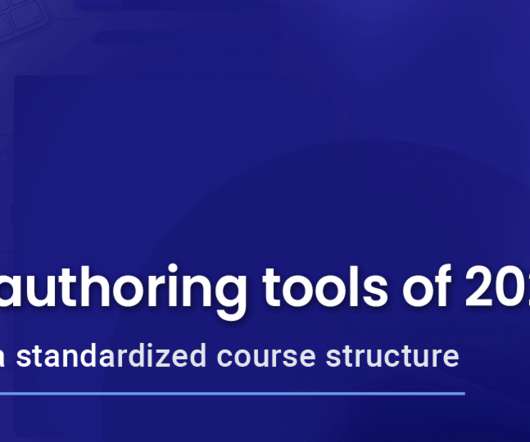Open Source eLearning Tools
Tony Karrer
OCTOBER 13, 2010
You can find a long list of tools broken into authoring tools, games/simulations, quiz/test tools, social media, delivery platforms, tracking and whether they support mobile. Applications in Learning - eLearning Technology , March 3, 2008 Have LMSs Jumped The Shark?












































Let's personalize your content